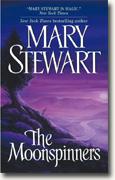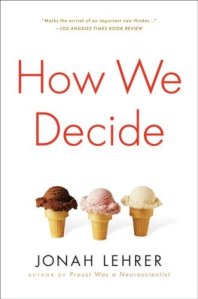The forty-ninth book I read this year was Harry Potter and the Deathly Hallows. It was this book that I cuddled up with on Christmas Eve, reading to my heart's content while the snow fell outside. And what a glorious day that was. I think books 6 and 7 are my favorites of the series, and boy, does JKR end with a bang.
I don't think there is another series that leaves me feeling quite like this one does, when I finish it. There's an internet e-card that circulates Pinterest in various forms that always says something like, Here I am... mourning the deaths of fictional characters while life goes on around me. Or... Just finished another book series and now I don't know what to do with my life. &c.
That's kind of how it is for me with HP. I love the series; I hate that it has to end. I want to read ALL ABOUT THE 19 YEARS that happens after the end of the main story and the start of the epilogue in Deathly Hallows. I feel like I'm saying goodbye to my friends when I shut that book. Deathly Hallows definitely gets 5 stars. If I had more time, I'd was poetic about all the best parts. Alas, I must proceed to book 50.
--------------------------------------------------------------
The fiftieth book I read in 2012 as The God of Small Things by Arundhati Roy. As I mentioned in my review on Goodreads, somehow I confused this book with a different title and mistakenly thought I'd already read it. I'm glad I discovered the error, though, and got the chance to read this one for real. I give it 4 stars.
Let me start by saying that this is one of the saddest books I've ever read. I'm going with 'sad' even though I've heard other readers vehemently protest that designation and say it should be called melancholy. Melancholy is fine, too. But back to the point. Seriously, Ms. Roy, I don't think it could get much more depressing.
If you aren't a fan of books that don't end in sunshine and roses, or even have the slightest glimpse of a ray or a petal, this is not the book for you. Me-- I really appreciate well-written books of any type. If it makes me feel as deeply as this one did, I'm not really concerned about the fact that the story is terribly tragic. I'm just grateful for the experience.
Roy's writing style is haunting and beautiful. The narrative skips around in time-- in the interview at the end, she mentions that the book starts at the end and ends in the middle. This is very accurate. She includes enough foreshadowing that you know a little about a lot of things that are going to happen, you just don't know exactly when and how. For impatient readers, this could be problematic. I happened to like how she set it up. I admit, at times I had to stop and figure out where in time the next section of the book was before I could continue. It wasn't terribly off-putting for me, but I think for some it might be.
Because I don't even know how to give a brief summary of the plot without spoiling it, I'll borrow one.
"Equal parts powerful family saga, forbidden love story, and piercing political drama, it is the story of an affluent Indian family forever changed by one fateful day in 1969. The seven-year-old twins Estha and Rahel see their world shaken irrevocably by the arrival of their beautiful young cousin, Sophie. It is an event that will lead to an illicit liaison and tragedies accidental and intentional, exposing "big things [that] lurk unsaid" in a country drifting dangerously toward unrest." -- back cover
Some of my favorite parts of Roy's writing:
"...the secret of the Great Stories is that they have no secrets. The Great Stories are the ones you have heard and want to hear again. The ones you can enter anywhere and inhabit comfortably. They don't deceive you with thrills and trick endings. They don't surprise you with the unforeseen. They are as familiar as the house you live in. Or the smell of your lover's skin. You know how they end, yet you listen as though you don't. In the way that although you know that one day you will die, you live as though you won't. In the Great Stories you know who lives, who dies, who finds love, who doesn't. And yet you want to know again.""What Esthappen and Rahel witnessed that morning, though they didn't know it then, was a clinical demonstration in controlled conditions (this was not war after all, or genocide) of human nature's pursuit of ascendancy. Structure. Order. Complete monopoly. It was human history, masquerading as God's Purpose, revealing herself to an underage audience.
There was nothing accidental about what happened that morning. Nothing incidental. It was no stray mugging or personal settling of scores. This was an era imprinting itself on those who lived in it.
History in live performance.
If they hurt Velutha more than they intended to, it was only because any kinship, any connection between themselves and him, any implication that if nothing else, at least biologically he was a fellow creature-- had been severed long ago. They were not arresting a man, they were exorcising fear. They had no instrument to calibrate how much punishment he could take. No means of gauging how much or how permanently they had damaged him.
Unlike the custom of rampaging religious mobs or conquering armies running riot, that morning in the Heart of Darkness the posse of Touchable Policemen acted with economy, not frenzy. Efficiency, not anarchy. Responsibility, not hysteria. They didn't tear out his hair or burn him alive. They didn't hack off his genitals and stuff them in his mouth. They didn't rape him. Or behead him.
After all they were not battling an epidemic. They were merely inoculating a community against an outbreak."









